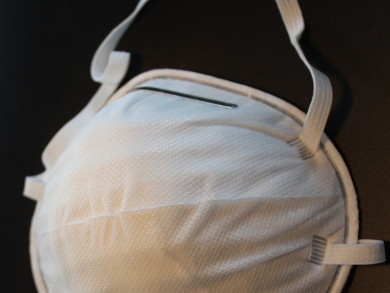Volatile organic compounds (VOCs) are air pollutants which can cause health problems and are emitted, e.g., by solvents or cleaning products. They can be removed from air using activated carbon, for example. However, powdered activated carbon is not well suited for inclusion in some consumer products such as textile masks and is difficult to regenerate after use.
Juan P. Hinestroza, Cornell University, Ithaca, NY, USA, William R. Dichtel, Northwestern University, Evanston, IL, USA, and Cornell University, Ithaca, NY, USA, and colleagues have coated cotton fabric with a porous β-cyclodextrin (β-CD) polymer, resulting in a new material that can capture organic pollutants. The β-CD polymer is synthesized by adding a solution of β-CD and K2CO3 in water to a solution of tetrafluoroterephthalonitrile in tetrahydrofuran (THF). The team simply added cotton fabric to the reaction mixture during the formation of the polymer to prepare the coated cotton material.
The β-cyclodextrin macrocyle can form host-guest complexes with a variety of organic compounds, and the porous structure of the polymer improves the uptake kinetics due to a high surface area. The resulting fabric can be used to remove the pollutant bisphenol A (BPA) from water and to capture VOCs such as styrene from air in a fast and efficient manner. Additionally, the material can be regenerated at room temperature. According to the researchers, the fabric could be useful as a membrane for water purification, for textiles with deodorant properties, and in masks that can capture harmful airborne chemicals.
- Cotton Fabric Functionalized with a β-Cyclodextrin Polymer Captures Organic Pollutants from Contaminated Air and Water,
Diego M. Alzate-Sánchez, Brian J. Smith, Alaaeddin Alsbaiee, Juan P. Hinestroza, William R. Dichtel,
Chem. Mater. 2016.
DOI: 10.1021/acs.chemmater.6b03624




